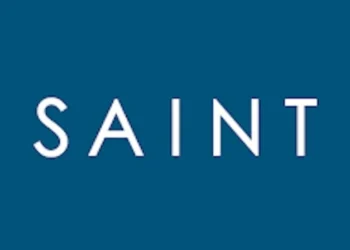An administrative law judge ruled on Friday that Columbia University graduate student and pro-Palestinian activist Mahmoud Khalil can be deported under the Immigration and Naturalization Act.
It’s not at all clear who’s paying Khalil’s legal expenses, which are not trivial.
Before we celebrate that decision too much we have to remember that there will be an administrative appeal after which the case will go to the U.S. District Courts and, probably two years from now, to the Supreme Court. Khalil will remain in the U.S. and in U.S. custody until then unless a judge orders his release.
Khalil is reportedly of Syrian parentage and possibly an Algerian citizen. He could be deported to either country if they’ll take him back.
Khalil gained notoriety during the 2024 anti-Israel protests at Columbia in which buildings were seized and classes cancelled. He has remained at the front of the pro-Gaza (meaning pro-Hamas) anti-Israel protests and is now a minor media figure.
The administrative law judge agreed with his ultimate boss, Secretary of State Marco Rubio, that Khalil’s presence in the U.S. poses “potentially serious adverse foreign consequences, and would compromise a compelling U.S. foreign policy interest.”
Khalil is a Green Card holder, a permanent legal resident, and is married to a U.S. citizen. Neither fact is a bar to his deportation. According to the U.S. Customs and Immigration website, even green card holders are required to obey all U.S. laws and those of localities. They are responsible to pay taxes and “expected to support the democratic form of government.” By supporting the Palestinian cause — and Hamas — Khalil clearly fails in that responsibility.
Khalil’s lawyers and supporters (including House members such as Rashida Tlaib and Ilhan Omar) contend that the proposed deportation is nothing more than an effort to quash free speech.
Most people don’t realize that when a legal or illegal alien comes into the U.S., they obtain the rights that a U.S. citizen has, including freedom of speech and the right to demonstrate. No federal law, even the Immigration and Naturalization Act, can supersede the Constitution.
Courts, when they are operating properly, seek to uphold the constitutionality of a law that they are ruling on. In Khalil’s case, is there a logical explanation of how his First Amendment rights aren’t violated by deporting him?
There is. A person’s rights under the First Amendment aren’t unlimited. As the old saw goes, you can’t shout “fire!” in a crowded theater if there really is no fire. And, as the Supreme Court ruled in Brandenberg v. Ohio (1969), there is a two-part test to determine whether a person has gone beyond his rights under the First Amendment.
Under Brandenberg, the test is: (1) whether the speech is “directed at inciting or producing imminent lawless action” and (2) it must be “likely to incite or produce such action.”
There must be many video and audio recordings of Khalil inciting lawless action such as occupying university buildings and intolerant conduct toward Jewish students. If there are, the case against him is pretty simple. And there is a lot more to it.
It’s hard to see how one student agitator poses an adverse foreign policy consequence. Having gained some prominence, Khalil is certainly more influential than he was when he was merely a grad student working on a master’s degree which was awarded to him in December 2024. Unless he is now pursuing a Ph.D., his student visa would appear to have expired which is reason enough to deport him.
It is correct to say, as have Khalil’s supporters, that he has not been convicted of any crime or even arrested. He has been careful to avoid violations of local law. But by leading anti-Israel protests he is stirring up students even beyond Columbia University.
It’s not at all clear who’s paying Khalil’s legal expenses, which are not trivial. Is it his family? More likely it is a number of Islamic “charities” which, as we learned from the book, Alms for Jihad (Cambridge University Press 2006) many if not most of those charities are connected to terrorist groups and spend their money supporting that cause.
The nearly-impenetrable web of those charities and “non-governmental organizations” (NGOs) may make it impossible to trace donations from those charities to Khalil’s defense funds, but the State Department must try in order to support their case in the litigation that will certainly follow.
On the other hand, has he given support, verbal or financial, to Hamas or any other terrorist group? If so, again, the case against him would be simple.
Khalil Being Held in US Custody
Is Khalil’s case one of suppressing free speech, as his supporters insist, or is it, as Rubio says, one that is trying to enforce the law that governs the behavior of green card holders?
Khalil is reportedly being detained in a Louisiana facility. Under the Supreme Court’s recent decision in the Tren de Aragua case, any litigation including a habeas corpus petition must then be tried in Louisiana, not in a forum-shopping exercise in, for example, New York City where Khalil’s lawyers have filed a habeas petition. A Louisiana federal court will take up the case and decide it before it goes to the Federal Appeals Court and then, possibly, to the Supreme Court.
The courts will have to decide whether Khalil’s right to free speech supersedes the Immigration and Naturalization Act’s enforcement. It shouldn’t.
READ MORE from Jed Babbin:


![Jasmine Crockett Justifies Mass Illegal Immigration With Bizarre Argument [WATCH]](https://www.right2024.com/wp-content/uploads/2025/03/1742007023_Jasmine-Crockett-Justifies-Mass-Illegal-Immigration-With-Bizarre-Argument-WATCH-350x250.jpg)
![Red Sox Fan Makes the ‘Catch of the Day’ with Unconventional ‘Glove’ [WATCH]](https://www.right2024.com/wp-content/uploads/2025/04/Red-Sox-Fan-Makes-the-‘Catch-of-the-Day-with-350x250.jpg)
![NYC Tourist Helicopter Falls into Hudson River, Siemens Executive and Family Among Those Killed [WATCH]](https://www.right2024.com/wp-content/uploads/2025/04/NYC-Tourist-Helicopter-Falls-into-Hudson-River-Siemens-Executive-and-350x250.jpg)
![Biden Drops Racial Slur During First Public Speech Since Leaving Office [WATCH]](https://www.right2024.com/wp-content/uploads/2025/04/Biden-Drops-Racial-Slur-During-First-Public-Speech-Since-Leaving-350x250.jpg)



![Green Day’s Cringe Trump Diss Ends in Fire and Evacuation [WATCH]](https://www.right2024.com/wp-content/uploads/2025/04/Green-Days-Cringe-Trump-Diss-Ends-in-Fire-and-Evacuation-350x250.jpg)
![Bartender Threatens Patron with Baseball Bat for Wearing a MAGA Hat [WATCH]](https://www.right2024.com/wp-content/uploads/2025/03/Bartender-Threatens-Patron-with-Baseball-Bat-for-Wearing-a-MAGA-350x250.jpg)





